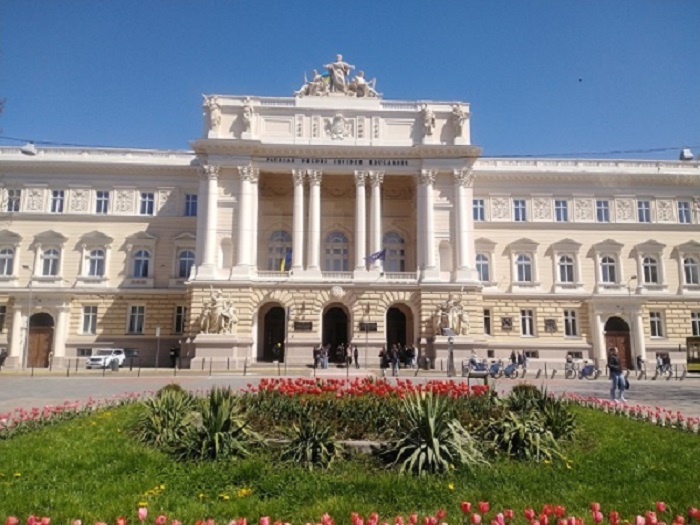
On Friday 14 April 2023, UniSIG members were joined via Zoom by Tatyana Yakhontova, professor of the Foreign Languages for Sciences department at the Ivan Franko National University of Lviv. Professor Yakhontova, who is a founder of the first Center for English Academic Writing in Ukraine and author of two textbooks on English academic writing, spoke about traditional and changing approaches to the written word in Ukraine, specifically in academia.
At the start of the meeting, the professor gave members pause for thought when she described the impact of the continuing war in Ukraine. The historic city of Lviv, though considered a relatively safe place for refugees from eastern Ukraine, is still regularly under attack. Cages erected to protect the many UNESCO sculptures in Lviv serve as a daily reminder of this context.
Professor Yakhontova spoke on the strong ‘culture of the word’ in Ukraine, and the value placed on grammatically and stylistically correct texts. Traditionally, writing was seen as a natural talent, not a skill that could be developed, and instruction was implicit. In Soviet times, copy-editing was used as a controlling, prescribing and censoring activity. Professor Yakhontova shared a personal anecdote wherein the copy editor of her first journal article drastically changed the text, and the changes made were not up for discussion. So it was in Soviet times.
After Ukraine’s declaration of independence in 1991, the world of academic writing and copy-editing began to change. There was broad support across society for a new ‘enlightening mission’ of copy editors, and the focus was placed squarely on the quality of the finished text. Notably, the original author of the text was now in a position to reject proposed changes! In the discussion that followed the talk, it was remarked how much copy-editing as a profession was valued in comparison to some other countries. Currently in Ukraine, both the copy-editing and the revision of all texts to be published are held in high regard, and almost all copy-editors are employed by publishers. This is in contrast to the freelance markets elsewhere, for example in the Netherlands and in the UK.
The reasons for these changes can be located in Ukraine’s striving for integration in Europe, the increased collaboration with US and European colleagues, and the development of applied linguistics, particularly in discourse and genre studies. In turn, these developments yield practical implications that can be used in teaching writing, and academic writing in particular.
Academic copy-editing in the English language in Ukraine is only sporadically sought out by people who work in the university system, who must publish in English ‘or perish’. However, these scholars often possess an insufficient level of English. If students are expected to write in English, for example in the case of English literature students, it is simply expected that they will know how to do so. This is also the case for many researchers, who seek writing assistance only informally. At the same time, there is increased instruction in academic writing, for example, through short training courses and writing courses aimed at doctoral students.
Concerning academic writing in the Ukrainian language, even less copy-editing support is available, which may reflect the traditional view of writing as a natural talent. At the same time, copy-editing of texts written in Ukrainian continues to be seen as a socially important activity that helps to celebrate and preserve the national language. This reflects a feeling of pride in the written word that is even more evident since the 2022 invasion.
People who attended the meeting, among whom were guests joining from outside the Netherlands, offered perspectives on English language proficiency, copy-editing and writing instruction (or lack of) in the UK, the Netherlands, Finland, South Africa, Switzerland and Kazakhstan.
|
Blog post by: Tomas Brogan LinkedIn: tomasbrogan |
